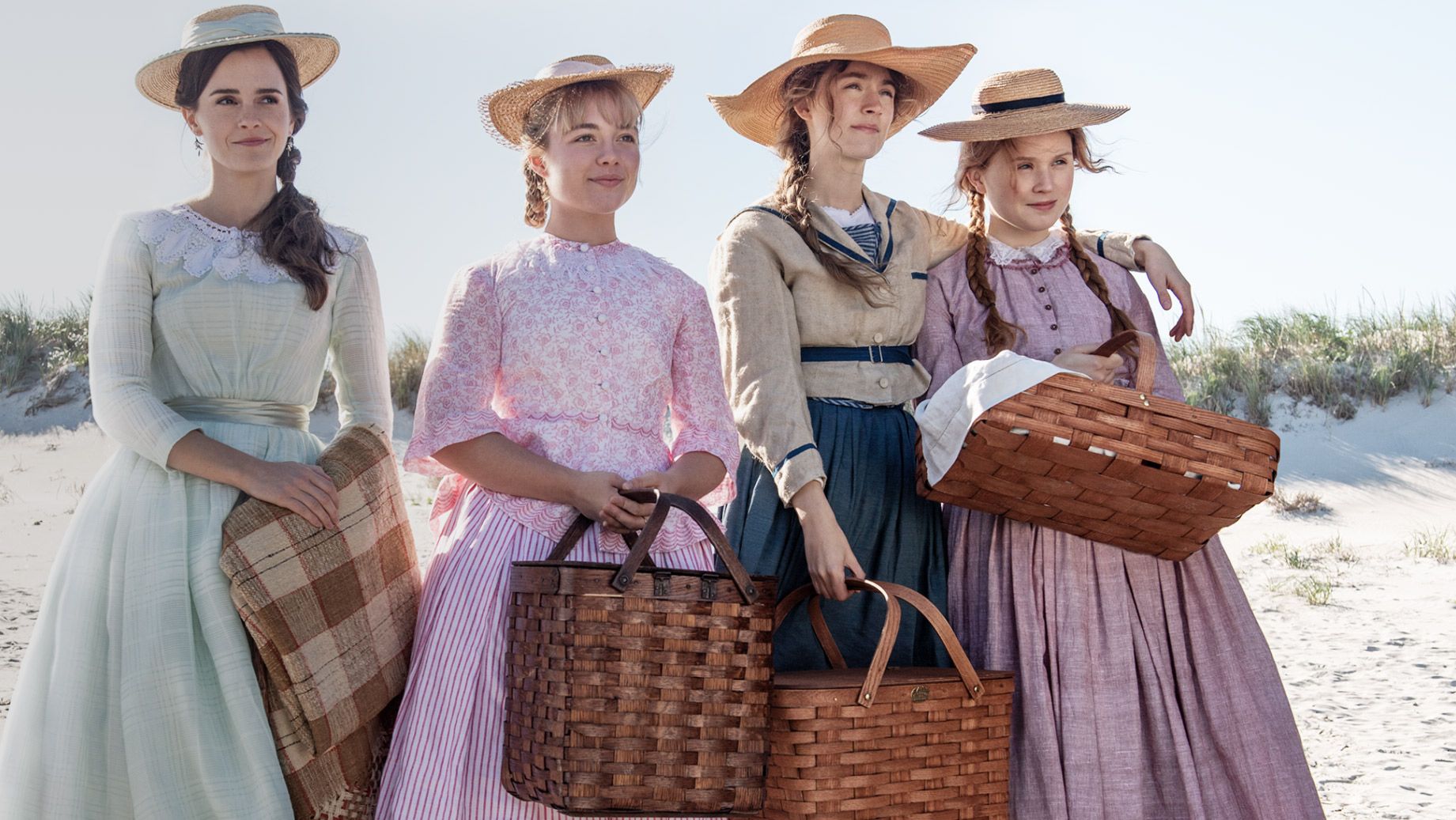From Louisa May Alcott’s first introduction of the March sisters in her novel, to its latest film adaptation in 2019, “Little Women” has proved itself to be a timeless classic.
Though on the surface this is a film that revolves around young women and their goings-on, this century-old story anchors itself in philosophical quandaries regarding love, comportment, and growing up a woman.

IMDb
Jo March and Laurie look at each other in a field.
“Little Women” (2019) directed by Greta Gerwig revolves around four sisters growing up during the American Civil War. The sisters, Meg, Jo, Beth, and Amy have totally distinctive personalities and each have individual life goals that really set them apart.
Throughout the film, which spans several years, audiences will get a strong sense of how this family stays together even when they are apart. The themes of girlhood, feminism, family, and romance are all present in this adaptation.
The same director of “Little Women” (Greta Gerwig) also directed the movie “Barbie”. We can see there’s a similar theme that’s not outwardly pronounced: sisterhood, womanhood, and girlhood are all similar concepts seen in both movies. Both films encourage young women and challenges the conventional ideas of what a woman should be.
“Little Women” shows the struggle of being poor and how being selfless can bring about good karma. Beth (portrayed by Eliza Scanlen) is very shy, caring, and it takes a bit for her to open up – character traits that are very relatable. One quote that stood out was, “I cant believe childhood is over.”
Another moment that stands out is when Laurie, the male lead of the film played by Timothée Chalamet, tells Jo (Saoirse Ronan) about his love for her, which she rejects. As a hopeless romantic, the ending sparked something which other hopeless romantics would understand. The movie has an overall happy ending, though fans of the book, or movie, will note that not everyone makes it out unscathed.
The rest of the cast is rounded out by Emma Watson playing Meg, fan-favorite Florence Pugh as Amy, and Laura Dern bringing Marmee March to life. The star-studded cast is one reason this adaptation comes to life so vividly and is one of the many pluses in the film.
According to Little Women Analysis, “‘Little Women’ is an enduring classic of domestic realism, tracing the lives of four sisters from adolescence through early adulthood. The narrator is omniscient and intrusive, frequently interrupting the narrative to provide moral commentary. Often didactic and sentimental, the novel nevertheless realistically portrays family life in the mid-nineteenth century United States. [T]he four ‘little women’ of the March family journey into womanhood, learning difficult lessons of poverty, obedience, charity, and hard work along the way.”
Though the novel has a sequel, the film does not, raising some objections to the way the March family’s stories continue. According to America Magazine, “There is a dominant strain of literary critique on ‘Little Women’ that holds that the first half of the novel evinces a feminist power that has to do with the absence of men, but that the second half, originally entitled ‘Good Wives’, is a disappointment because the March girls—now women—become wives. The dominance of this reading is not surprising, since derision of marriage and glorification of single womanhood is one prominent strain in modern feminist thought, and it is typically feminist critics who have been interested in ‘Little Women’.”
For a movie adapted from such an old story it has immense charm and is overall relatable and moving. Though there have been other adaptations and there is, of course, the book to contend with, the 2019 adaptation of “Little Women” is a must-see if you enjoy feel-good family-friendly movies that are uplifting and meaningful.

